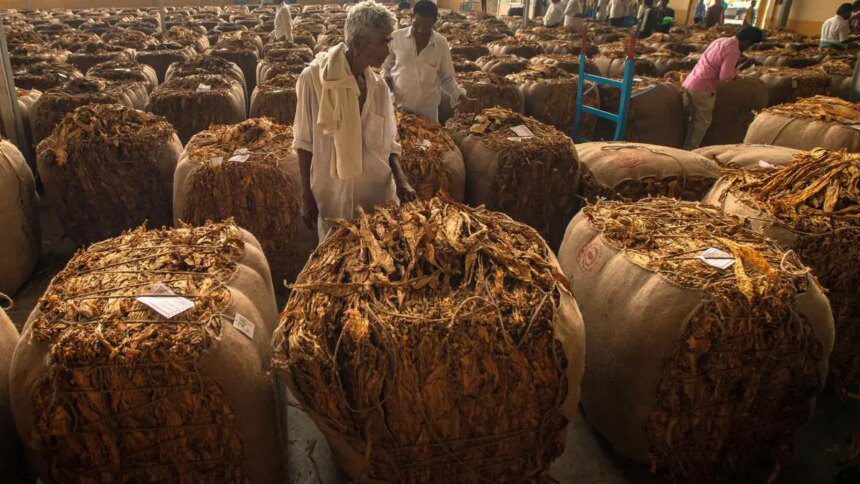Farmers cultivating Black Burley tobacco in Andhra Pradesh are facing a significant challenge as the new tobacco-crop season approaches. With previous seasons yielding a surplus, many farmers are opting to reduce the area dedicated to this variety due to the absence of viable alternatives and a lack of buyers.
In the last season, farmers produced approximately 80-90 million kilograms (mkg) of Black Burley tobacco, a considerable increase from the average production of 20-25 mkg. This oversupply led to government intervention, with the state buying around 25-30 mkg to assist struggling farmers.
Murali Babu, a leader of the Federation of All India Farmer Associations (FAIFA), expressed concern over the surplus, stating, “I expect them to pare the area to below the normal area to avoid the repetition of what they experienced in the last season.” He highlighted the challenge posed by the lack of viable alternatives that would encourage farmers to exit tobacco cultivation.
The price of Black Burley tobacco fell sharply to ₹110-120 per kilogram in the 2024-25 season, down from ₹230 the previous year. The unusual returns in the last season spurred farmers to increase production threefold, but diminishing demand this year left them with unsold stock, resulting in a dire situation.
The Tobacco Board does not provide support for this variety, forcing farmers to either enter contracts with traders or risk cultivating the crop in hopes of future sales. M Venkateswara Rao, an exporter, argued for urgent reforms in tobacco cultivation and marketing, noting, “Some companies are even allowed joint ventures, yet broader reforms remain stalled. When sensitive industries such as defense manufacturing have welcomed foreign direct investment, why has tobacco, an industry with major health implications and revenue potential, been excluded?”
He mentioned that foreign companies wanting to establish processing and product industries in India are facing regulatory obstacles.
Reflecting on global trends, Venkateswara Rao pointed out that last year, Brazil experienced a drop in crop yield due to floods, while other tobacco-producing nations also saw reduced cultivation. However, this year’s global yields have rebounded. He noted that the market has slowed due to decreased demand following the Covid-19 pandemic, leading to fewer investors and buyers.
Over the next five years, the sector is projected to need ₹1,500–2,000 crore to modernize curing infrastructure, develop traceability systems, secure sustainability certifications, and establish processing hubs. He cited Brazil as an example of modernization and compliance with global sustainability standards, which has allowed its farmers to achieve consistent earnings 15-20 percent higher than competitors.
A tobacco analyst, however, maintained that India possesses sufficient processing capacity to manage the entire production. “I don’t think there is any issue regarding the processing,” he stated.
Published on October 7, 2025.










